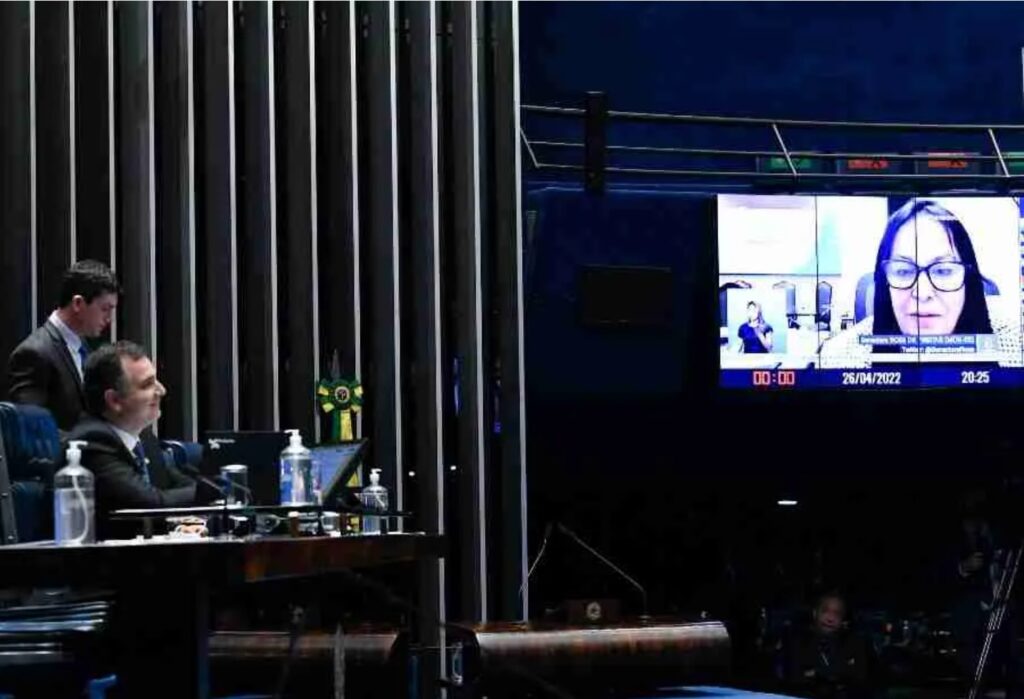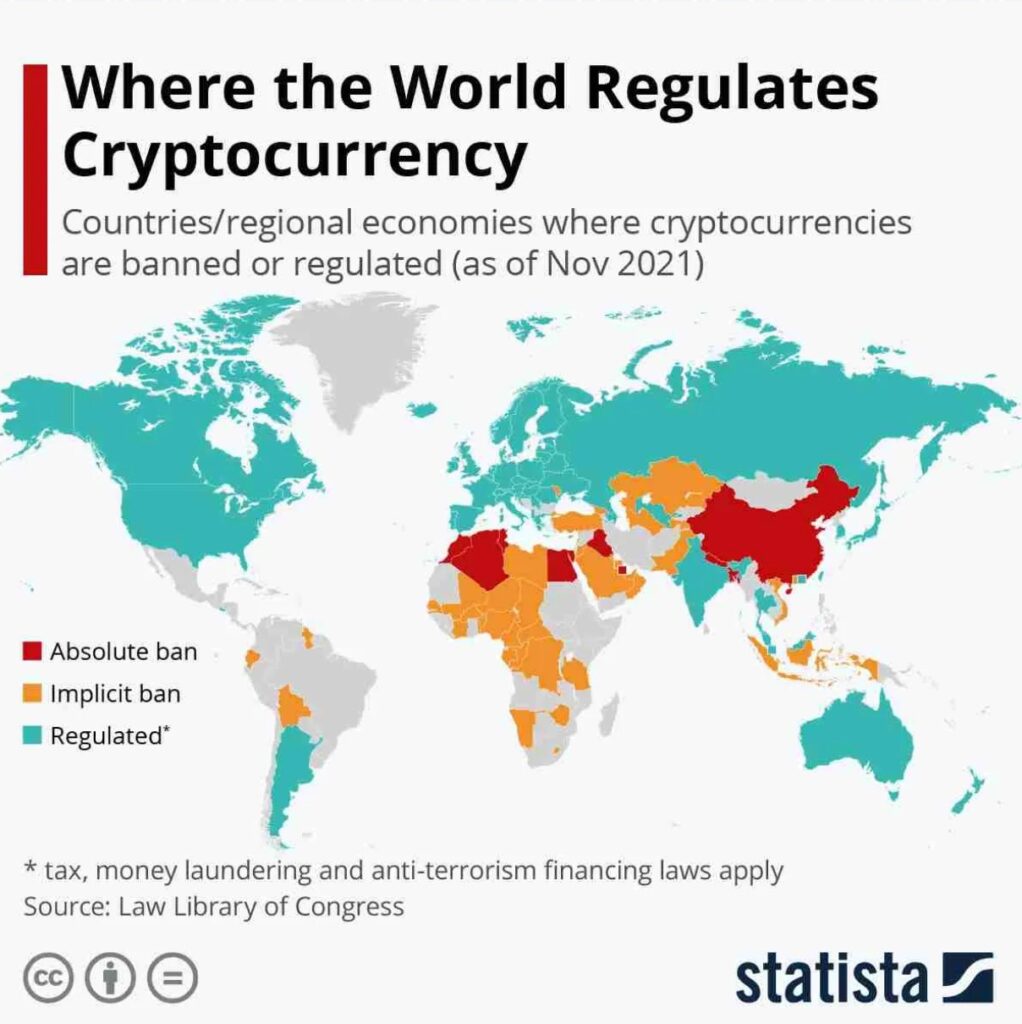This article is from www.blocknews.com.br and the original article can be read here in Portuguese

The Senate approved, this Tuesday (26), the regulation of the billion dollar cryptocurrency market. Now, the bill 4.401/21 will return to the Chamber of Deputies. If approved in the Chamber of Deputies, then it goes to President Jair Bolsonaro for approval. At the end of a 55-minute discussion, there was a symbolic vote, that is, who is against it. This happens when there is consensus on the voting of the matters. Thus, Brazil is closer to being one of the few countries that will have a more detailed regulatory framework on issues such as how the market should work, who can operate and the penalties for those who commit crimes, for example, financial pyramids.
According to Statista, there is regulation in several markets around the world, especially in the Northern Hemisphere. However, the survey, from November 2021, also considers laws relating to taxes, money laundering and anti-terrorist financing as regulation. This means that not exactly countries have specific regulations for crypto assets.
Among the points that the bill that the Senate approved is the one that indicates that the detailing of the regulation will be in charge of the Executive. This may involve institutions such as the Central Bank (BC) and the Securities and Exchange Commission (CVM), which are more technical.
And it indicates, for example, that it is illegal for companies here to act without authorization. Including foreign cryptocurrency exchanges. This point is usually a dispute between national exchanges, such as Mercado Bitcoin, against Binance, the largest in the world and also in Brazil. Who will be able to operate are companies that exchange between virtual assets and fiat currencies, exchange between virtual assets, transfer of virtual assets, custody and administration of virtual assets and offer services by an issuer or sale of assets. And those who already operate will have six months to adapt to the new rules, when they come into force.
Previous projects, such as PL 3,825/2019, PL 3,949/19 and 4,207/20 will be archived. Although it was from them that the current PL, the substitute 4.401/21, emerged. The first proposal was that of deputy Aureo Ribeiro (Solidariedade-RJ), in 2015, in this case, PL 2,303/15, which the Chamber approved last December.

During the discussions, the issue of punishment for crimes associated with cryptocurrencies took up a lot of time. Senator Rose de Freitas (MDB-ES) evaluated that the project does not firmly protect small and medium investors, which is related to the General Code itself. For the president of the Senate, Rodrigo Pacheco (DEM-MG), the prescribed sentence responds to requests for progressive sentences.
The text that goes to the plenary of the Chamber to vote must be the result of the analysis of the PL’s rapporteur, senator Irajá Abreu (PSD-TO), of the requests for changes that the senators made during the debate. But, as the deputies have already voted on PL 2,305/15, there is already a precedent for regulation in the house.
For Rodrigo Borges, lawyer and partner at Borges, Carvalho e Araújo, one of the positive points in this matter is that parameters were established to combat money laundering and the financing of criminal activities in line with the recommendation of the FATF (the international group for Financial Action against Money Laundering and the Financing of Terrorism). In addition, there was the classification of crimes committed through the use of virtual assets.
Lucas Buck, director of strategy and investments in cryptocurrencies at the NFMarket Agency, in line with Senator Rose, assesses that “the regulation is against what we propose. It is the government’s role to mitigate fraud, but fraud does not occur in a standard way at brokerages. The law will be ineffective in the end. Maybe it can help at the end where people are deceived, who have less knowledge of this economy. It is an entry and exit regulation of platforms, from an individual or legal entity to brokers. will tax and enforce transactions between cryptos and the normal economy that exists today. It does not oversee the peer-to-peer, decentralized transaction”.
Borges also recalls that the PL defines what virtual assets are, which is important, in this case, to establish that it is the representation of value that can be negotiated for payments or investments.
Although cryptocurrencies are “circulating” in the country, the lack of regulation has left loopholes for any companies, including those that are scams, to operate and without control. In addition, companies in the sector – the most serious ones – believe that investors, especially those with more money, are encouraged to enter or act more forcefully in the market with the regulations. This is because they associate regulation with security, protecting investors. Regulations also make entrepreneurs more comfortable to put money and time into a business that operates under clear rules.
The fact that there is a crypto-asset does not mean that they will be legal tender, that is, equivalent to the real. It just means that the industry is now allowed to operate, including for the use of cryptocurrencies, under certain rules.
One of the points of the PL that can encourage the sector and at the same time encounter resistance in the next phases is the tax exemption from PIS, Cofins and Industrial Products Tax for the import and industrialization of software and machines capable of mining cryptocurrencies. But this is provided that renewable energy sources are used and the operation is carbon neutral.
Tax exemption is usually an arm wrestling between those who want to encourage a sector – for example, Congress or a ministry – and the Ministry of Finance. This one doesn’t like tax cuts because, in principle, it affects tax collection and, therefore, the government’s accounts.
For Borges, some important points of the market still need to be addressed. “The PL did not address the issues related to the securities tokenization process and did not define which body of the executive branch will be responsible for the specific regulation. In addition, it does not provide any parameters as to the bases of authorization for providers of virtual asset services and leaves to face issues such as decentralized finance (DeFi), non-fungible tokens (NFTs) and decentralized autonomous organizations (DAOs)”. Thus, it left out aspects that are already part of the daily life of the blockchain ecosystem.
